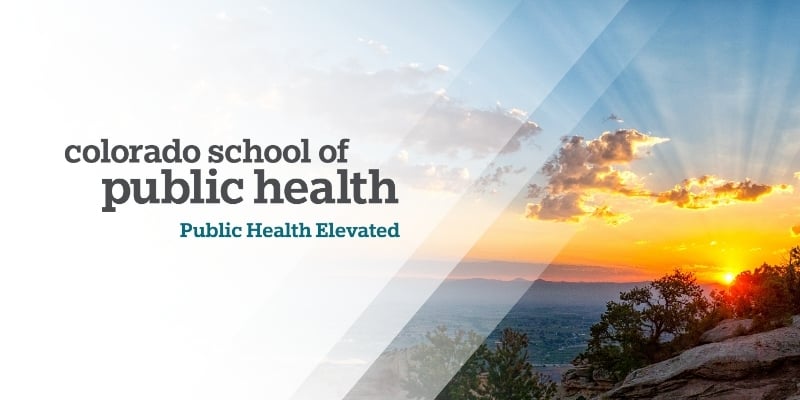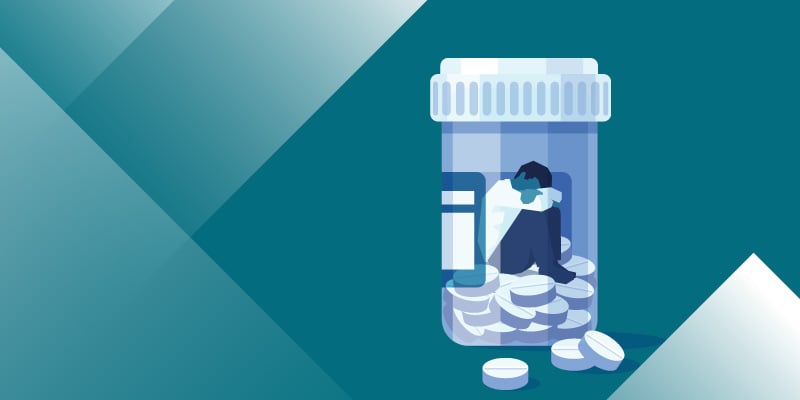Many statistics and headlines have alerted the world to the youth mental health crisis that has been exacerbated post-COVID by isolation, social distancing, remote learning, and more. But for Dr. Heather Kennedy, PhD, MPH, and her team at ColoradoSPH’s Hub for Justice-Centered Youth Engagement, these challenges, and their solutions, lie within youth and the often undervalued and underfunded support systems of young people, who are oftentimes burnt out.
That’s where the team’s Creative Journey program comes in. The program, which was funded by a grant from Caring for Denver in 2022, and has now been expanded through 2026, supports school social workers and other mental health professionals to lead groups of 10 to 20 youth through an art-based process that identifies and addresses their unmet mental health needs. Creative Journey was specifically created to use art therapy as an intervention for youth, especially those who have been pushed to the margins, but are not currently in crisis.
“These are the young people who are not usually involved in or invited to student government…. Through the way that the group is structured, through the way that we power share, it was able to give an external place for young people to say, ‘Well, I actually do have a voice, and we have ability to advocate for change even though we are not in student council, even though we are not at the official student governance level,’” said Creative Journey Youth Specialist Noah Jansen.
Using art as a means to address well-being is a method to support youth holistically, across culture, experience, and identities, Kennedy said. Many students’ favorite activity is creating face masks with paint, glitter, and other tactile materials that help them explore and reflect on their shown and hidden identities, and self-expression. While they might be uncomfortable verbally expressing their feelings to their peers and adults, creating a mask to represent the face they show people in their lives allows them to show rather than tell what they’re experiencing.
According to Allyson Howe, MSW, program manager of Creative Journey, many students found value in mask-making.
"Young people have expressed that ‘Sometimes I don’t feel comfortable talking about mental health… but I like showing it,’" said Allyson Howe.
This also creates opportunities for young people to gain a sense of belonging by realizing that they are not alone in some experiences and have empathy for what peers are going through.
The Creative Journey program initially engaged 20 students across two schools, Denver South and Colorado High School Charter. It has since grown by 575% in terms of students impacted, by expanding to four schools, and serves more than 115 students. Kennedy said much of the success is thanks to the facilitators — the school social workers and psychologists — in the Denver Public Schools system who have asked for the programs at their schools, or for the program to be expanded. These adults know how to amplify the voices and needs of young people and have made this program possible.
The other element of the program success is the one-on-one coaching sessions Kennedy’s team provides to each mental health professional, including opportunities to collaborate, work through challenges, and discuss their own feelings and emotions.
“When adults receive coaching and work with young people as partners, when they’re engaging in intentional power sharing, this really aims to foster a sense of healing, a sense of hopefulness, and a shift in power dynamics,” Howe said.
Like many faculty at ColoradoSPH, Kennedy is also a member of one of ColoradoSPH’s 16 research centers, in this case the Center for Public Health Practice.
With additional funds and investments, Kennedy hopes to add a research component to the Creative Journey program to quantify and measure its impact and effectiveness and potentially grow it throughout the state, especially in rural areas.
“Young people are powerful, but we need to support them to experience the fullness of that power,” Kennedy said, adding that these programs teach students, through their trusted adult facilitators, that they have a voice and decision-making power.






